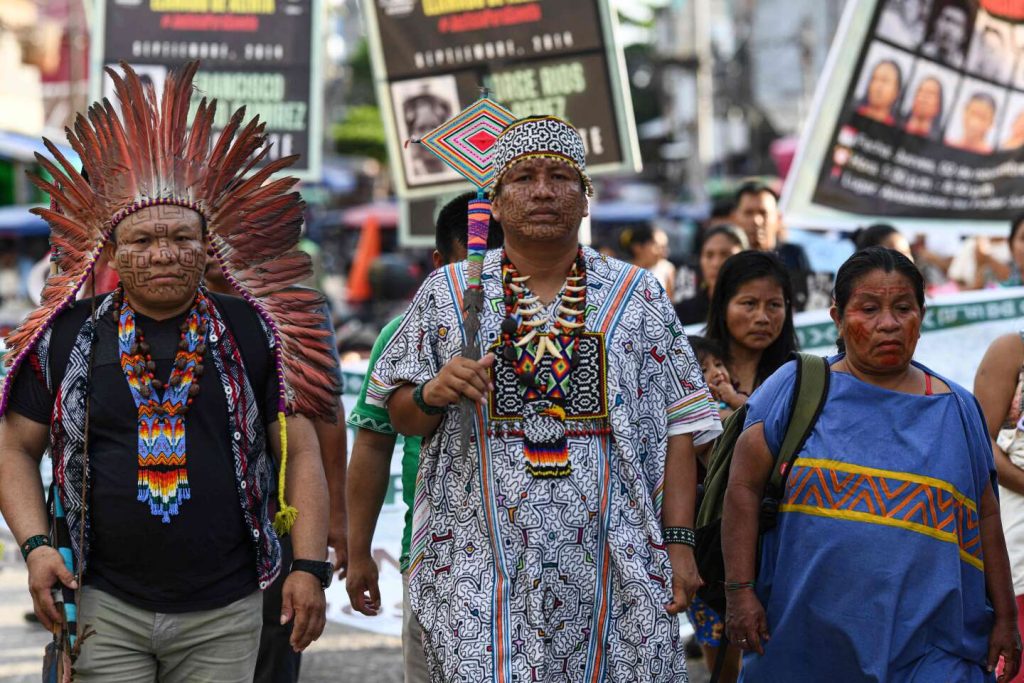A Peruvian court has sentenced five men to nearly thirty years in prison for the murder of four indigenous leaders who were fighting against illegal logging in a border area between Peru and Brazil in 2014. The judge, Karina Bedoya Maque, sentenced the brothers Josimar and Segundo Atachi, as well as Jose Carlos Estrada, Hugo Soria, and Eurico Mapes to twenty-eight years and three months in prison for their role as “co-authors of aggravated homicide”. The prosecutor had asked for thirty-five years of imprisonment for each of the accused. The four indigenous leaders were killed in front of members of their community on September 1, 2014, sparking criticism against Peruvian authorities for not providing enough protection and support for their efforts to defend the forests against logging.
The families of the slain indigenous leaders from the Saweto community in the Ucayali region of Peru hope that this verdict will set a precedent for the protection of indigenous leaders and environmental defenders. Edwin Chota, one of the victims, was known in Peru and internationally for his work in defending the Amazon forests. According to the NGO Global Witness, at least 54 environmental defenders have been killed in Peru since 2012, with over half of them belonging to indigenous groups. The widow of one of the leaders expressed relief at the verdict after traveling two days by river and road to attend the trial.
Environmental groups and indigenous leaders welcomed the verdict, with the NGO Derecho, Ambiente y Recursos Naturales (DAR) declaring on social media that justice had been served and impunity for the murderers of environmental defenders was over. Indigenous leaders outside the courthouse reaffirmed their commitment to defending the forest and rivers. The trial began in November 2023, with the accused initially being sentenced to twenty-eight years in prison in February 2023. However, the judgment was overturned in August of the same year due to irregularities in a witness statement that led to a new trial being ordered.
In recent years, criminal networks involved in illegal logging in the Amazon region have infiltrated indigenous territories to extract timber and operate by threatening local communities. The assassination of the indigenous leaders highlighted the dangers faced by those fighting against environmental destruction and the need for greater protection of environmental defenders. The communities affected by these activities have called for stronger measures to be taken against those responsible for the murder of their leaders and for the preservation of the Amazon rainforest. The trial and conviction of the perpetrators send a message that there will be consequences for those who engage in such violence against environmental defenders.















